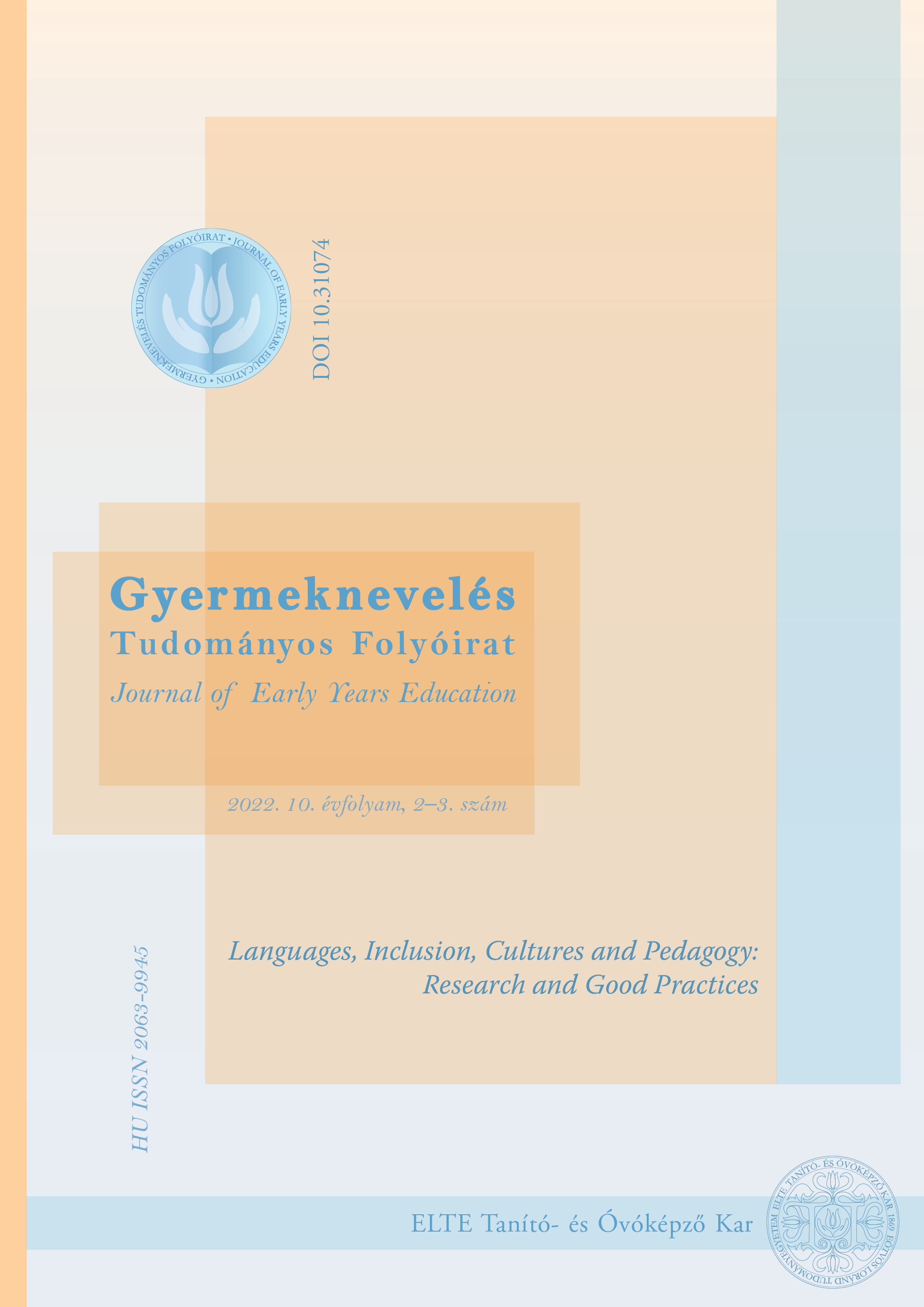Culture in language: Bilingualism and identity in The Poems of American – Hungarian Poets
DOI:
https://doi.org/10.31074/gyntf.2022.2.308.322Kulcsszavak:
bilingualism, biculturalism, emigration, identity, acculturation strategiesAbsztrakt
Today, when there is a revival of examining and understanding bilingualism, we often conduct research on bilingual education while scrutinizing the effect of the phenomenon on the individual and the society. Most research aims to highlight how a foreign language can be acquired and how it forms a ‘bilingual pair’ with L1. However, there is less exploration into the other direction, i.e., how L1 behaves in a foreign context and how identity is re-structured in a new setting. It is not only a linguistic but a social question as well that can especially be reflected in literary works. This year, when we celebrate the sixty-sixth anniversary of the 1956 Hungarian Revolution, this paper intends to commemorate the many poets who emigrated to foreign countries as a result of this conflict by examining aspects of their language usage and cultural identity.
Letöltések
Hivatkozások
Barron, D. (2021). The Legendary English-Only Vote of 1795. www.watzmann.net/scg/german-by-one- vote.html
Berry, J. W. (2008). Globalisation and acculturation. International Journal of Intercultural Relations, 32(4), 328–336. https://doi.org/10.1016/j.ijintrel.2008.04.001
Crèvecoeur, St. J. (1989). Letters from an American Farmer, Letter III. In An Early American Reader (pp.115–120) . U.S. Information Agency,
Hoffmann, C. (1991). An Introduction to Bilingualism. Longman.
Horváth, L. (1998). Előszó. In Horváth, L. (Ed.), Amerikai és kanadai magyar költők hitvallása. (pp. 5–8). Hotvath Loránd.
Erdélyi, E. & Nobel, I. (1999). A magyar irodalmi nyelv megtartásának lehetőségei két-vagy többnyelvű környezetben. Új Pedagógiai Szemle, 49(07–08), 211–220.
Kósa, L. (1991). Hungarológia – Magyarságtudomány – Országismeret. In Kósa, L. (Ed.), A magyarságtudomány kézikönyve (pp. 11–74). Akadémiai Kiadó.
Lengyel, Z. (2006). Anyanyelv, második nyelv, környezetnyelv – a kétnyelvűség alapkérdései.. Doktori disszertáció. Nyugat-Magyarországi Egyetem. http://doktori.btk.elte.hu/lingv/barthakrisztina/diss.pdf
Nagy, C. (1990). A magyar emigráns irodalom lexikona. MTA Irodalomtudományi Intézete és a Petőfi Irodalmi Múzeum.
Navracsics, J. (1999). A kétnyelvű gyermek. Corvina.
Phillipson, R. (1992). Linguistic Imperialism. Oxford University Press.
Pomogáts, B. (2002). Rendszerváltás és irodalom. Kossuth Klub.
Poplack, S. (2001). Code-switching. In Smelser, N. J. & Baltes, P. B. (Eds.), International Encyclopedia of the Social and Behavioural Sciences (pp. 2062–2065). Elsevier Science Ltd. https://doi.org/10.1016/B0-08-043076-7/03031-X
Roller, K. (2001). „…Mi is voltunk egyszer az Akadémián”, Soprontól Vancouverig 1956–2000. Tarsoly Kiadó.
Skutnabb-Kangas, T. (1984). Bilingualism or Not, The Education of Minorities. Multilingual Matters.
Wardaugh, R. (2006). An Introduction to Sociolinguistics. Blackwell.
Whitman, W. (1855). Preface to the Leaves of Grass. http://www.bartleby.com/39/45.html
Websites
Wikipedia (2021). Hungarian diaspora. ttps://en.wikipedia.org/wiki/Hungarian_diaspora#
cite_note-17
##submission.additionalFiles##
Megjelent
Hogyan kell idézni
Folyóirat szám
Rovat
License
Copyright (c) 2022 Szerző

This work is licensed under a Creative Commons Attribution-NonCommercial-ShareAlike 4.0 International License.

